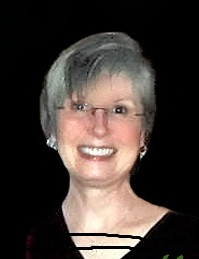

1956
Maria
2013
Maria Garcia-Moll
February 22, 1956 — September 23, 2013
María García-Moll, 57, passed away early Monday morning September 23. 2013, following complications from breast cancer in Bethesda, Maryland. Maria was a well-regarded molecular biologist specializing in the development of HIV vaccine. Maria headed the molecular biology department at Bio-Molecular Technology Inc., a Frederick biotechnology company where she was part-owner for over 20 years.
Born in San Juan, Puerto Rico in 1956, to Armando García Gayá, an architect, and Carmen Solange Moll-Folch, Maria loved art, learning her appreciation first-hand from her grandfather, Puerto Rican painter José María García. She studied Biology in Puerto Rico and West Germany but also took graduate degrees in Comparative Literature and Theatre, studying with professor Piri Fernández de Lewis and novelist Luis Rafael Sánchez, author of “La güaracha del Macho Camacho” -translated to English as “Macho Camacho’s Beat” by Gregory Rabassa in 1980, and became an admirer of Nigerian poet and playwright Wole Soyinka.
A keen observer of the world, María was a true naturalist, whether at the microscopic scale of molecular biology or the wider social and political scale of human life and endeavor. A lover of detective fiction, she often remarked that humans and genes both followed “not only chains of causality but also chains of chance, cause and effect never precluding passion, or simple, dumb happenstance.” The “heat of the moment” was an oft-used private joke about thermodynamics.
Exacting and demanding of herself, she was always willing to evolve her political stance. In grade school she carried extra pencils “to have ready for those forgetful classmates.” Later she would confront, sometimes at considerable personal risk, friends or foes on both sides of student disturbances at the University of Puerto Rico during the 1970’s, demanding they “explain, not explain-away... or go away” whenever their words or actions exceeded the bounds of civility. Her small frame, striking beauty and enormous force of character combined to produce what a friend later remembered as “a clearly fragile object but obviously immovable force; what a formidable sight!”
María loved clarity and passion alike in science and art. She was a devoted admirer of the whimsical, mysterious but rationalist work of Paul Klee. While living in Munich, across from the BMW Museum, in the 1980’s she would often race from the Alte Pinakothek’s moody self-portrait by Dürer to the wild collection of Kandinsky canvasses at Lenbachhaus. But the Bauhaus was in her heart, and she collected products by Apple beginning with the original Mac in 1984, becoming a true champion of the company’s minimalist design ethos. María believed in modernity but she drove a stick-shift 1964 Volvo through her college years not only to every beach in Puerto Rico but also up blood-chilling mountain roads. Eventually she found the perfect mix of form and function in BMW’s Mini Cooper. She explained that her Mini was “the only street-legal Apple product in the market.”
A dedicated scientist and skeptic, María believed in always looking deeper; not only at data or evidence but at one’s self and the world. Her favorite quotation was from Albert Camus, “Nothing in this world is worth turning away from what one loves,” which was a popular citation on college campuses, even emblazoned in posters. But she followed the trail to the pages of Camus’ 1947 novel, The Plague, and there took his words to heart in their full context. And quoted the next sentence, too: “And yet I do turn away, I too, without being able to know why.”
“Not inspirational-poster material, but the material nonetheless,” she said. No matter how often she may have been asked or forced to look away by people, circumstances or her own limits, María always turned back upon the matter at hand, always returned to the fray. “To know why” was María’s quest, and the day she left us, she was still finding pleasure and fulfillment in that work.
María García-Moll is survived by her husband, attorney and biologist Berge Hampar, her mother Solange Moll-Folch, her sisters Solange and Teresa García-Moll, her brother Alberto García-Moll and her many devoted friends and family in the USA and all over the world.
Donations can be made to American Cancer Society.
Born in San Juan, Puerto Rico in 1956, to Armando García Gayá, an architect, and Carmen Solange Moll-Folch, Maria loved art, learning her appreciation first-hand from her grandfather, Puerto Rican painter José María García. She studied Biology in Puerto Rico and West Germany but also took graduate degrees in Comparative Literature and Theatre, studying with professor Piri Fernández de Lewis and novelist Luis Rafael Sánchez, author of “La güaracha del Macho Camacho” -translated to English as “Macho Camacho’s Beat” by Gregory Rabassa in 1980, and became an admirer of Nigerian poet and playwright Wole Soyinka.
A keen observer of the world, María was a true naturalist, whether at the microscopic scale of molecular biology or the wider social and political scale of human life and endeavor. A lover of detective fiction, she often remarked that humans and genes both followed “not only chains of causality but also chains of chance, cause and effect never precluding passion, or simple, dumb happenstance.” The “heat of the moment” was an oft-used private joke about thermodynamics.
Exacting and demanding of herself, she was always willing to evolve her political stance. In grade school she carried extra pencils “to have ready for those forgetful classmates.” Later she would confront, sometimes at considerable personal risk, friends or foes on both sides of student disturbances at the University of Puerto Rico during the 1970’s, demanding they “explain, not explain-away... or go away” whenever their words or actions exceeded the bounds of civility. Her small frame, striking beauty and enormous force of character combined to produce what a friend later remembered as “a clearly fragile object but obviously immovable force; what a formidable sight!”
María loved clarity and passion alike in science and art. She was a devoted admirer of the whimsical, mysterious but rationalist work of Paul Klee. While living in Munich, across from the BMW Museum, in the 1980’s she would often race from the Alte Pinakothek’s moody self-portrait by Dürer to the wild collection of Kandinsky canvasses at Lenbachhaus. But the Bauhaus was in her heart, and she collected products by Apple beginning with the original Mac in 1984, becoming a true champion of the company’s minimalist design ethos. María believed in modernity but she drove a stick-shift 1964 Volvo through her college years not only to every beach in Puerto Rico but also up blood-chilling mountain roads. Eventually she found the perfect mix of form and function in BMW’s Mini Cooper. She explained that her Mini was “the only street-legal Apple product in the market.”
A dedicated scientist and skeptic, María believed in always looking deeper; not only at data or evidence but at one’s self and the world. Her favorite quotation was from Albert Camus, “Nothing in this world is worth turning away from what one loves,” which was a popular citation on college campuses, even emblazoned in posters. But she followed the trail to the pages of Camus’ 1947 novel, The Plague, and there took his words to heart in their full context. And quoted the next sentence, too: “And yet I do turn away, I too, without being able to know why.”
“Not inspirational-poster material, but the material nonetheless,” she said. No matter how often she may have been asked or forced to look away by people, circumstances or her own limits, María always turned back upon the matter at hand, always returned to the fray. “To know why” was María’s quest, and the day she left us, she was still finding pleasure and fulfillment in that work.
María García-Moll is survived by her husband, attorney and biologist Berge Hampar, her mother Solange Moll-Folch, her sisters Solange and Teresa García-Moll, her brother Alberto García-Moll and her many devoted friends and family in the USA and all over the world.
Donations can be made to American Cancer Society.
To order memorial trees or send flowers to the family in memory of Maria Garcia-Moll, please visit our flower store.


